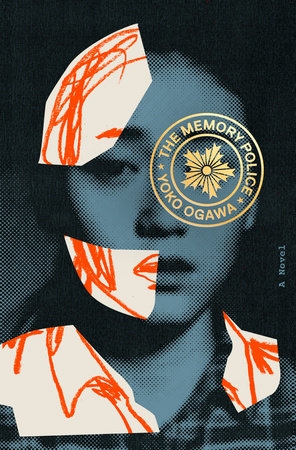Steve Snyder’s Translation of Japanese Novel Named National Book Award Finalist

MIDDLEBURY, Vt. – Steve Snyder, dean of the Language Schools and vice president for academic affairs, has translated numerous books from Japanese into English, but Yoko Ogawa’s The Memory Police has been the most critically acclaimed. The novel is the first he’s worked on to make the 2019 National Book Award shortlist for translated literature, a category reinstated last year after a long hiatus. The book is one of five finalists on the list. It is also the fifth book by Ogawa, a well-known and prolific Japanese author, to be translated into English with Snyder as her sole translator.
Critics have embraced the novel. In its September 12 list of “10 New Books We Recommend This Week,” the New York Times called The Memory Police an “elegantly spare dystopian fable.” Wired magazine named The Memory Police its book of the month for August and said the book “truly feels like a portrait of today.” The Washington Post’s reviewer said, “Ogawa finds new ways to express old anxieties about authoritarianism, environmental depredation and humanity’s willingness to be complicit in its own demise.” In a profile of the author, Snyder himself told the New York Times, “There is a naturalness to what she writes, so it never feels forced… . Her narrative seems to be flowing from a source that’s hard to identify.”
In the Q&A below, Snyder, who recently took a trip to Tokyo, shared his thoughts on what it is like work with Ogawa, why her book is relevant now, and how he has time to do his “day job” and translate literature.
What have you liked most about working on The Memory Police?
I enjoyed the change it provided from day-to-day duties and the challenge of finding an English idiom for Yoko Ogawa’s inimitable style in Japanese.

published in Japan in 1994.
Why is the topic of her book relevant right now?
Though The Memory Police was written in 1994 and is Yoko Ogawa’s response to earlier forms of totalitarianism, the novel resonates with our era of growing state surveillance, “fake news,” and a government with a tenuous relationship to facts and reality. The book is set on a small island, where objects disappear, including boats and photographs, and then police wipe the memories of these objects from the minds of the citizens. The time lag between the original Japanese and the English translation was due largely to the vagaries of the publishing industry and my own schedule, but it turned out to be uncannily fortuitous.
What is it like to work with Yoko Ogawa?
She is an extremely warm and generous person, and she has always supported the choices I’ve made about which books to translate (she has more than 30 in Japanese), the order in which to translate them (which has not corresponded to their order of publication in Japanese, for a variety of reasons), and how to translate them. We don’t communicate generally during the translation process, but we get together to celebrate when something comes out and to discuss the next project, which is in part why I’m in Tokyo now.
Will you go to the announcement ceremony?
In September the National Book Foundation announced that The Memory Police was one of 10 books to make the longlist for the National Book Award for translated literature. This was wonderful news, but now it’s even more exciting because, as of October 8, the novel has made the shortlist, so I will probably go to the announcement ceremony. One of the five books on the shortlist will win the award.
It seems unusual for a translator of a book to be interviewed along with the author, as you were for the NYT profile of her. Is that true?
Unusual, perhaps but not unheard of. Well-known translators such as Michael Hoffman or Edith Grossman are interviewed frequently. Motoko Rich, the New York Times Tokyo bureau chief who wrote the profile, is very well informed and connected and regularly consults academics and others as background for her stories.
How long have you been translating Japanese literature?
A bit over 30 years.
How do you manage to do the translation work and your job as dean of the Language Schools?
I’m lucky to work in the Language Schools with the most amazing group of people anyone could imagine. They make my job, including some time to translate every week, not just possible but a huge pleasure. Also, a publisher’s deadline can be a great motivating force.

